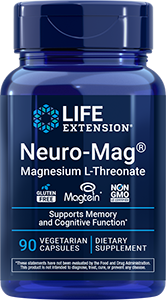
What is Dopamine?
Published: July 2021
Bad days come and go, but if you have been feeling a bit "meh" a little too often lately, you might want to consider the source. Everyone has their down moments, but if your energy levels and a lack of focus seem to be a central theme in your life, then it may be time to take your "feel good" neurotransmitter, dopamine, for a tune up.
What does dopamine do to the human brain and body?

So you may have heard, dopamine is a neurotransmitter. But, what are neurotransmitters and what do they do exactly? As a neurotransmitter, dopamine is a naturally occurring brain chemical within the body that sends information between neurons. Neurons are the nerve cells that make up our nervous system, which includes the brain and spinal cord (your central nervous system) and nerves that reach the rest of the body (your peripheral nervous system).
Most notably associated with the brain's pleasure and reward system, dopamine's impact on our overall mental performance and well-being goes far beyond physical satisfaction. Dopamine production is responsible for other important actions, including movement, memory, attention, sleep, mood and learning.
Why is dopamine called the "feel good" neurotransmitter?

Dopamine is called the "feel good" neurotransmitter because it's the brain chemical in our body that is transmitted when we experience pleasure. This includes life's more guilty pleasures.
However, dopamine responds to all situations and behaviors that we need (or have trained ourselves to need) in order to survive, including food and water. That rush of pleasure you get when you eat after you've been famished? Classic moment of dopamine release! Dopamine signaling is our body's natural way to ensure that we continue the necessary tasks for optimal health.
Does dopamine make you happy?

Another nickname for both dopamine and serotonin is the "happy hormone" because this neurotransmitter plays a crucial role in your brain's reward system. Dopamine is associated with pleasurable sensations as well as learning, memory and movement. But dopamine activity does not actually make you happy—rather, it helps motivate you to do the things that will bring you pleasure.
However, make sure that you are maintaining your healthy dopamine levels with healthy lifestyle choices like exercise, sleep, diet and supplementation—rather than indulging in high sugar foods, risky behavior or other substances that can have unfavorable consequences or encourage bad habits.
What region of the brain does dopamine come from?

Dopamine is produced by several areas of the human brain, including the ventral tegmental area (VTA). The ventral tegmental area is responsible for signaling to the brain when something is pleasurable or rewarding.
After being made in the VTA, dopamine is then transferred into other regions of the brain when a favorable action occurs; even the anticipation of a reward will trigger dopamine release into the brain.
Explore Our Best Mood Support Supplements
How does dopamine make us feel?

When you experience a pleasurable event, like eating your favorite food or receiving a gift from a friend, your body releases dopamine. Over time, your brain cells then associate the release of dopamine with these pleasurable events, so that even thinking about them can trigger the release of this neurotransmitter.
For instance, if you had a bad day at work and decide to whip up your favorite comfort food when you get home, your brain releases dopamine, which elevates your mood and makes you feel better. Your brain then associates the comfort food as a reward and encourages you to repeat this behavior to get the feeling of satisfaction again and again. Before you know it, every high energy workday concludes with the dopamine-triggering meal that got you through that first experience. This is how habits—both good ones and bad ones—are created.
Knowing this can help you establish healthy behaviors. For example, eating when you are feeling blue might feel great at the time, but it is probably not ideal for your health. Start doing yoga or going for a brisk walk instead of eating your feelings, and voila! You have transformed a potentially negative habit into a positive one.
How do you support healthy dopamine levels?

Follow these tips and tricks to help support healthy dopamine production:
- DO supplement smartly. You can help support healthy dopamine function by adding essential brain health supplements to your wellness routine. Start incorporating philodendron, curcumin, vitamin B12 (as adenosylcobalamin), magnesium and fish oil to maintain the dopamine activity, and other important neurotransmitters and neurohormones like pregnenolone.
- DO get outside. One of the best ways to support a healthy dopamine system is to simply get outside. If you live in an area with limited daylight hours or work hours that inhibit you from direct sunlight, it is important to supplement with the "sunshine vitamin," vitamin D, to support optimal levels of the neurotransmitter dopamine.
- DO follow a healthy routine. An easy way to support a healthy dopamine system is to get in the habit of creating a healthy routine for yourself (and sticking to it). Allow yourself enough time to get your work done, leaving you plenty of time at night for rest.
- DON'T skimp on sleep. Adequate and restful sleep gives the brain cells time to recharge from the day and reset your neurotransmitter levels. But don't overdo it! Make sure that you are sleeping around eight hours a night, as too much and too little sleep can make it harder to support healthy dopamine function.
- DO exercise. That "runner's high" is a type of dopamine rush that's actually good for you. But it does not have to be running—just make sure that you are engaging in physical activity each day, whether it's playing tennis, kickboxing or walking. Regular physical activity helps promote healthy blood flow throughout the body, so get off the couch and get your body moving to encourage the dopamine pathway.
- DO tune into your favorite tunes. Listening to music is a great way to get that happy hormone boost! Ever experience the chills when you hear a great song? That is your dopamine levels, in perfect harmony.
- DON'T let the world overwhelm you. Find a quiet space and let your brain "shut down" to the chaos surrounding you to counteract what could contribute to dopamine deficiency. To keep your dopamine levels optimal, let your thoughts, both positive and negative, leave your headspace and try to practice silence. New to meditating? Start out slow with five-minute sessions and work your way up over time.
The presence of the dopamine receptor is what allows us to enjoy all that the world has to offer us. With the right lifestyle, you can achieve exactly the right balance to live your life to the fullest.
References
- Cristol, Hope. "What Is Dopamine?" WebMD, June 2021, https://www.webmd.com/mental-health/what-is-dopamine
- Olguín, Hugo Juárez et al. "The Role of Dopamine and Its Dysfunction as a Consequence of Oxidative Stress." Oxid Med Cell Longev., December 2015, https://pubmed.ncbi.nlm.nih.gov/26770661/
- Pietrangelo, Ann. "How Does Dopamine Affect the Body?" Healthline, November 2019, https://www.healthline.com/health/dopamine-effects




